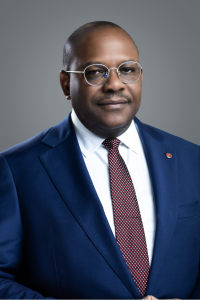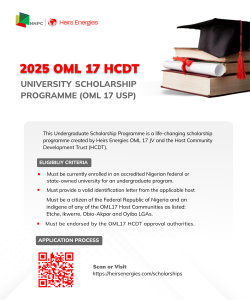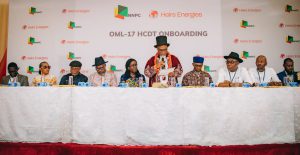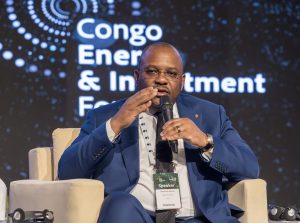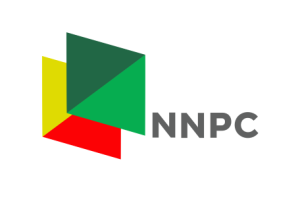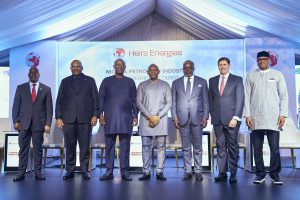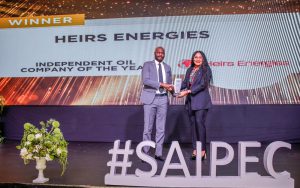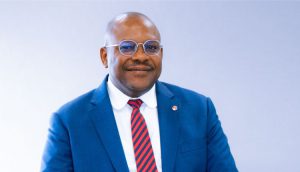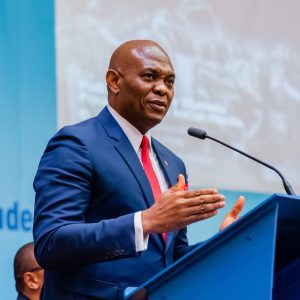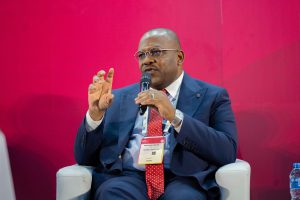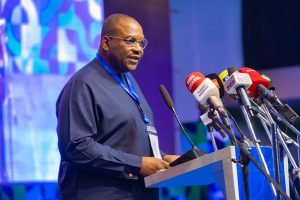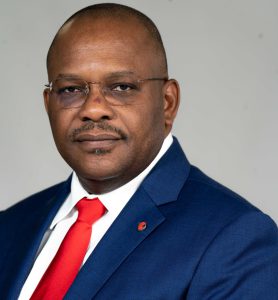Lagos, Nigeria – 4th August 2025 – Heirs Energies, Africa’s...
Read More
NNPC/Heirs Energies JV Launches University Scholarship for OML 17 Host Communities
Port Harcourt, Nigeria, Monday, 21 July 2025 – As part...
Read More
Heirs Energies and Renaissance Africa Energy Company Commit to Collaborative Approach to Drive Nigeria’s Indigenous Oil & Gas Development
Port Harcourt, Nigeria – 24th June 2025 – Heirs Energies...
Read More
Heirs Energies CEO Champions Pan-African Solutions at Congo Energy & Investment Forum
LAGOS, NIGERIA – 2 April 2025 – Heirs Energies CEO,...
Read More
President Tinubu Reconstitutes NNPC Limited Board, Appoints New Chairman, Group CEO
President Bola Ahmed Tinubu has approved a sweeping reconstitution of...
Read More
TVC Interview: Osa Igiehon discusses Heirs Energies’ business development and the Prospects for Crude Oil Production in Nigeria
Our CEO, Osayande Igiehon on TVC at sharing valuable insights...
Read More
Public And Private Sector Leaders Unite to Drive Nigeria’s Oil Production Growth
Abuja, Nigeria | February 24, 2025 – Heirs Energies, Africa’s...
Read More
Heirs Energies Convenes Industry Titans to Drive Nigeria’s Oil Production Growth
Abuja, Nigeria | February 2025 — Heirs Energies, Africa's foremost...
Read More
Heirs Energies Named “Independent Company of the Year” at SAIPEC 2025
Lagos, Nigeria – February 14, 2025 – Heirs Energies, Africa’s...
Read More
‘How Heirs Energies Approach Boost Production, Operational Excellence in Nigeria’s Oil, Gas Industry’ – Igiehon, Heirs Energies CEO
…as the company looks to acquire additional assets, expand operations...
Read More
CEO feature on Osa Igiehon on Arise Xchange
Our CEO, Osa Igiehon, appeared on Arise Xchange to discuss...
Read More
Heirs Energies champions Africa’s energy future with groundbreaking solutions at AEW 2024
Heirs Energies, Africa’s leading integrated energy company, delivered transformative insights...
Read More
Tony Elumelu to Co-Chair New Africa Summit at the 8th Edition of Saudi Arabia’s Future Investment Initiative
• Elumelu and other global financial business leaders will headline...
Read More
Heirs Energies Executives Highlight Gas and Renewables as Key to Nigeria’s Energy Future
At the Nigeria Energy Leadership Summit Heirs Energies CEO, Osa...
Read More
Heirs Energies CEO Discuss Nigeria’s Energy Sector in Financial Times Interview
Osa Igiehon CEO, Heirs Energies recently featured in an insightful...
Read More
Full Speech: Osayande Igiehon, CEO Heirs Energies at the Niger Delta Stakeholder’s Summit 2024
Full Speech: Osayande Igiehon, CEO Heirs Energies (Representing Mr Tony...
Read More
Heirs Energies’ CEO, Osayande Igiehon discussed energy sufficiency and the future of Nigeria’s energy sector
Osayande Igiehon, Chief Executive Officer and Managing Director at Heirs...
Read More
Heirs Energies CEO Advocates for Energy Sufficiency and Sustainable Partnerships at the 17th German-African Energy Forum
We are proud to share that our CEO, Osa Igiehon,...
Read More
CEOs of Heirs Energies and Transcorp Champion Africa’s Energy Transition at the 17th German-African Energy Forum
Lagos, Nigeria – May 13, 2024 – Heirs Energies CEO...
Read More

